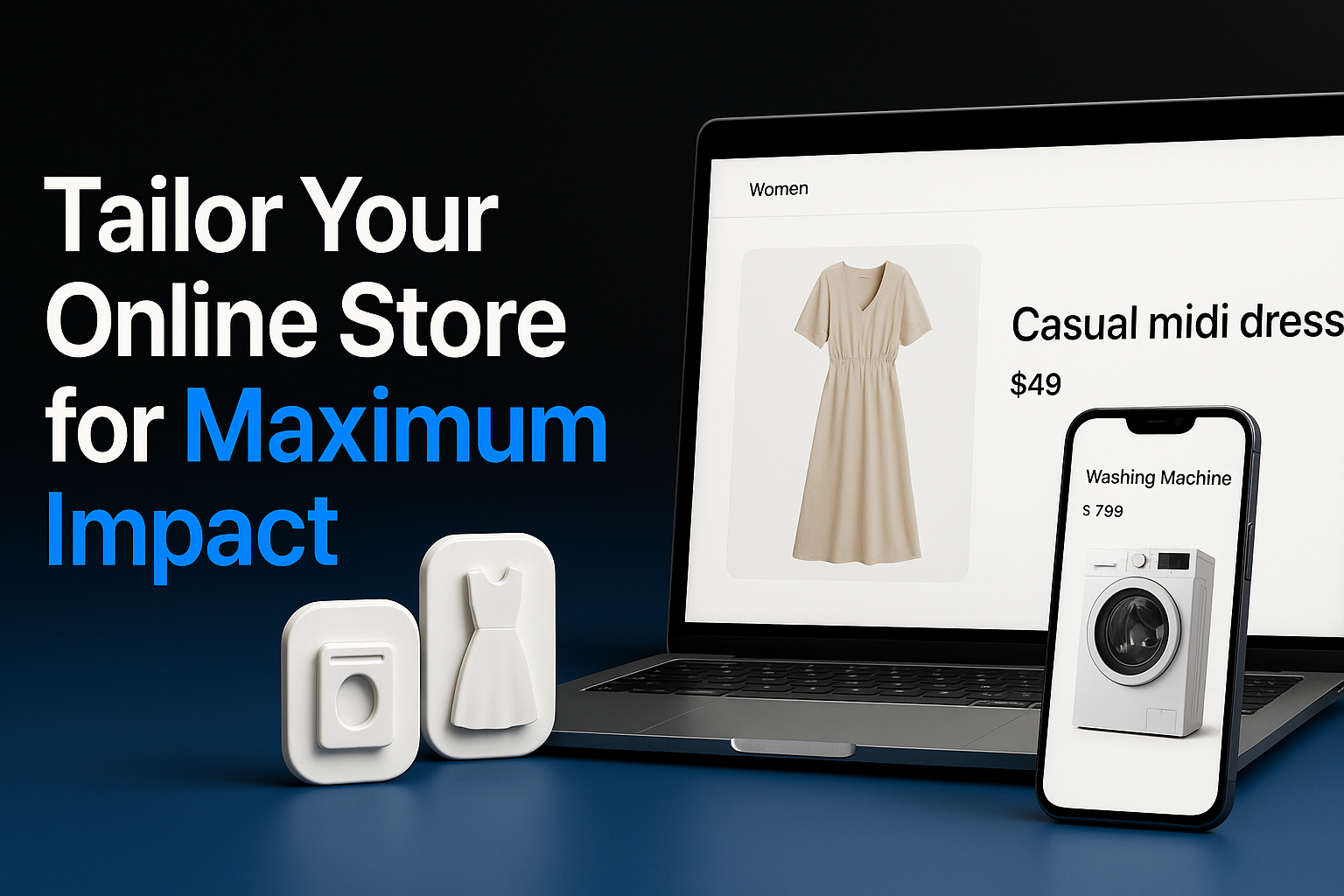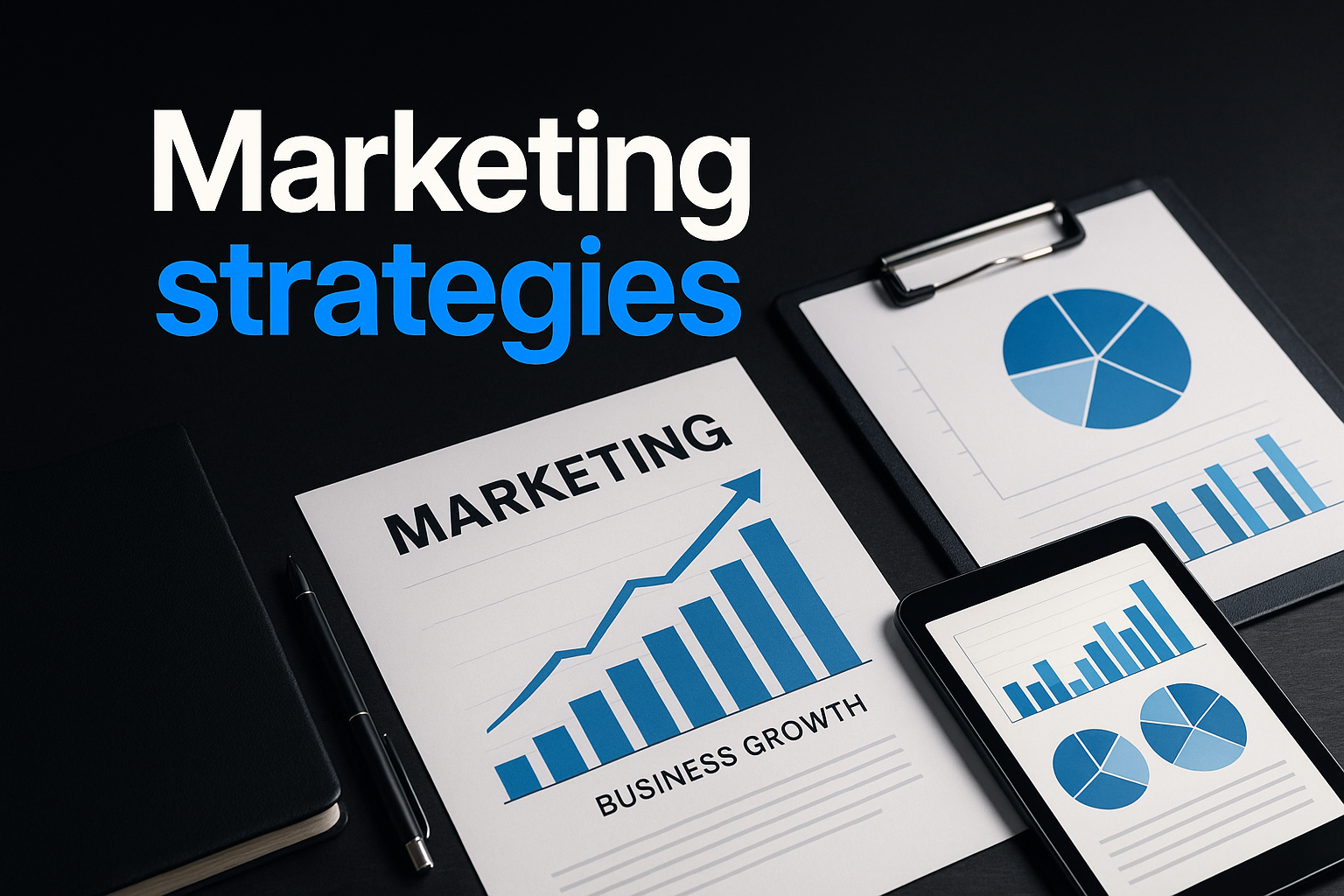Industry-Specific E-commerce Strategy: Tailoring Your Online Store for Maximum Impact
While digital commerce has become essential for all businesses, the most successful ones recognize that each industry has distinct requirements, customer behaviors, and conversion triggers.

Why Generic E-commerce Stores Fall Short
Generic online stores might check the basic functionality boxes, but they miss critical industry-specific opportunities to engage customers:
- Beauty and cosmetics customers expect immersive product visualization features
- Fashion shoppers want personalized recommendations
- Food and beverage consumers need easy reordering capabilities
- Electronics buyers require detailed specifications and comparison tools
- Home goods customers benefit from visualization features to see products in their space
Research shows that industry-tailored e-commerce experiences see 47% higher engagement rates and 36% better conversion rates compared to generic alternatives.
Identifying Your Industry's E-commerce Requirements
Before refining your industry-specific strategy, conduct thorough research to understand what your particular sector demands:
1. Map Industry-Specific Customer Journeys
Different industries have fundamentally different purchasing patterns:
| Industry | Typical Purchase Frequency | Decision Timeline | Key Motivators |
|---|---|---|---|
| Food & Beverage | Weekly | Minutes | Convenience, Speed |
| Fashion | Monthly | Days | Style, Identity |
| Electronics | Yearly | Weeks | Features, Quality |
| Furniture | Yearly+ | Months | Aesthetics, Durability |
| Beauty | Monthly | Days | Results, Trends |
Understanding these patterns helps you design an online experience that aligns with natural customer behaviors in your specific vertical.
2. Research Competitive Store Features
Analyze the top-performing stores in your industry:
- What features are considered standard?
- What innovative elements are driving engagement?
- What pain points do existing stores fail to address?
For example, successful beauty stores typically include visualization features, while electronics stores emphasize detailed specification comparisons.
3. Identify Industry-Specific Technical Requirements
Each industry may require specialized technical capabilities:
- High-resolution imagery for fashion and beauty
- Real-time inventory for food and limited-time offers
- 360-degree views for furniture and home goods
- Augmented reality for home décor and eyewear
- Subscription management for recurring deliveries
Customizing Your E-commerce Store for Your Industry
Once you've identified your industry's requirements, here's how to implement them effectively:
1. Optimize the Homepage for Industry Context
Your store's homepage should immediately signal industry relevance:
For Fashion:
- Showcase trending outfits
- Highlight seasonal collections
- Feature style inspiration
For Beauty and Cosmetics:
- Organize by product categories and concerns
- Display before/after galleries
- Feature trending ingredients
For Electronics:
- Categorize by device type
- Feature comparison tools prominently
- Highlight tech specs and compatibility
For Food and Beverage:
- Enable quick reordering
- Display meal suggestions
- Feature limited-time offerings
2. Design Industry-Appropriate Product Pages
Product detail pages should prioritize the information most relevant to your industry:
For Fashion:
- Multiple angles and zoom
- Size guides and fit information
- Styling suggestions
- Material details
For Beauty:
- Ingredient lists
- Application tutorials
- Results timeline
- Shade finders
For Home Goods:
- Room context photos
- Dimensions and measurements
- Material specifications
- Care instructions
For Food and Beverage:
- Ingredient transparency
- Nutritional information
- Preparation instructions
- Pairing suggestions
3. Implement Industry-Specific Features
Beyond basics, incorporate specialized features that address industry-specific needs:
For Fashion and Accessories:
- Virtual try-on for eyewear and jewelry
- Outfit builders
- Size recommendation algorithms
- Style quizzes
For Beauty and Cosmetics:
- AR makeup try-on
- Skin analysis tools
- Product matching to skin concerns
- Routine builders
For Home Goods:
- Room visualization
- Measurement tools
- Design consultation booking
- Room planning tools
For Electronics:
- Product compatibility checkers
- Setup guides and tutorials
- Warranty registration
- Technical support chat
For Food and Beverage:
- Dietary filter systems
- Recipe suggestions
- Subscription options
- Freshness tracking
4. Optimize the Checkout Flow for Industry Norms
Tailor your checkout process to match industry purchasing patterns:
For Repeat Purchase Industries (Food, Beauty):
- One-click reordering
- Subscription options
- Frequency selection
- Easy replenishment
For High-Consideration Industries (Furniture, Electronics):
- Financing options
- Extended warranty offerings
- Installation scheduling
- Detailed delivery information
For Gift-Heavy Industries (Fashion, Beauty):
- Gift wrapping options
- Gift message capabilities
- Multiple shipping addresses
- Gift receipts
Industry-Specific Marketing Strategies

Your promotional approach should align with industry-specific customer expectations:
1. Communication Strategy by Industry
Fashion:
- New collection alerts
- Back-in-stock for wishlisted items
- Flash sale announcements
- Style inspiration
Food and Beverage:
- Mealtime reminders
- Limited batch availability
- Restock notifications
- Seasonal menu changes
Beauty:
- Replenishment reminders
- New product launches
- Educational content alerts
- Personalized recommendations
2. Loyalty Programs by Industry
Design rewards that resonate with industry-specific motivations:
Fashion:
- Early access to new collections
- Style consultation services
- Exclusive events
- Member-only items
Food and Beverage:
- Free items after purchase frequency
- Tastings and experiences
- Recipe exclusives
- Preferential reservations
Electronics:
- Extended warranties
- Priority technical support
- Trade-in benefits
- Beta testing opportunities
Measuring Success: Industry-Specific KPIs
While all stores track conversions and engagement, prioritize metrics that matter most for your vertical:
Fashion:
- Items per order
- Return rate
- Wishlist to purchase conversion
- Style quiz completion
Food and Beverage:
- Reorder frequency
- Average order value
- Subscription adoption
- Time-to-purchase
Beauty:
- Replenishment rate
- Product category exploration
- Tutorial engagement
- Quiz completion
Home Goods:
- Visualization feature usage
- Time spent on product pages
- Cart value
- Planning tool engagement
Case Studies: Industry-Specific Success Stories
Beauty Brand Transformation
A mid-sized beauty brand saw a 64% increase in average order value after implementing virtual try-on features and skin analysis tools in their store, compared to their previous generic approach.
Food Delivery Revolution
A specialty food retailer implemented one-click reordering and meal pairing suggestions, resulting in a 42% increase in purchase frequency and 28% larger basket sizes.
Fashion Forward
A boutique clothing retailer incorporated style quizzes and outfit builders, leading to a 53% reduction in return rates and 37% increase in items per order.
Conclusion
In today's competitive e-commerce landscape, a generic online store strategy no longer suffices. By tailoring your digital experience to your specific industry's needs, customer behaviors, and purchase patterns, you can create a shopping experience that resonates more deeply with your target audience.
The most successful e-commerce stores don't just facilitate transactions – they create industry-specific experiences that understand and anticipate customer needs at every stage of the journey.
To learn more about setting up industry-specific marketing campaigns in Taptool, visit our App Design Guide.
